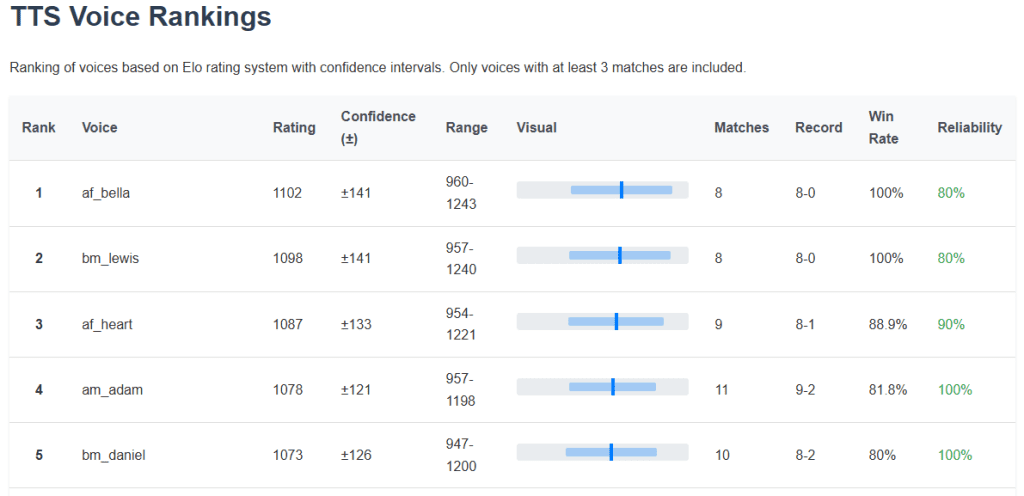Adventures in TTS
February 19th 2025
So, it turns out there’s a new text to speech engine on the block. It’s really good. Voices sound pretty human have little breaths and make sensible pauses and generally create well-formed speech. I wouldn’t say they’re as good as a great audiobook reader, but I’d say they’re better than the average audiobook reader. And you get to run it on your local machine.
There are also some new Edge-TTS voices, which if you haven’t played with them are really quite good, free?, and super-fast. Also, there are 300+ voices in many languages including about 50 for english. Most of the voices “VoicePersonalities” are set to “Friendly, Positive ” but there are some new ones that list things like warm, confident, authentic, honest, and rational.
I wanted to compare the voices and so I wrote a little tool that swaps between voices (code) but keeps your place in the recording. I had to spend a while trying to get the volume of all the recordings to be identical. I noticed that if a voice was slightly louder, I strongly preferred it. I wrote up a bit of code to try and fix that issue. I also struggled to find a piece of text that was a good test of the TTS engines, I picked a bit from The Fall of the House of Usher which is not in copyright and also has some words that are uncommon.

Then what I thought I really needed was a blind A/B comparison of the voices to see which one was the best. Which then necessitated some way to rank the choices. Initially I wrote some code to count the win/loss ratio for each of the voices but that seemed like not the best way. I worked up an Elo chess ranking system to sort the results.
I’ve run almost 200 blind A/B tests so far, I find the results pretty believable, but more would be better probably. If you want a quick TLDR; try af_bella and bm_lewis.
I hope to share the code for the testing/ranking soon but it’s all still in flux. It’s actually really hard to decide which paring of voices will give you the most information.
